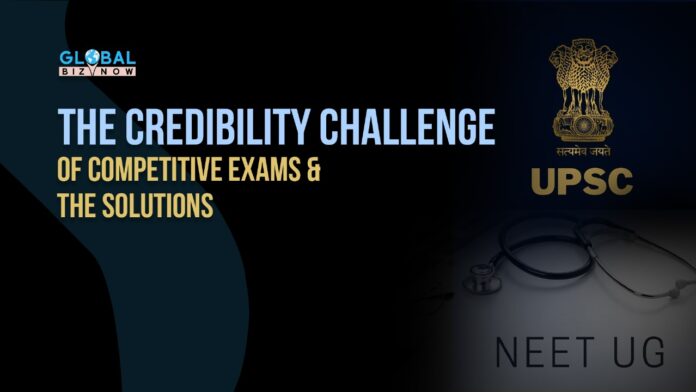In a small, bustling town in India, siblings Aarav and Meera faced critical examinations shaping their futures. Aarav aimed for the Union Public Service Commission (UPSC) to enter the Indian Administrative Service (IAS), while Meera sought to crack NEET-UG for a medical career. Their journey, however, was marred by significant concerns about the integrity of these competitive exams.
The UPSC Controversy and Its Impact on Aarav
The UPSC, a century-old institution, is renowned for its role in selecting top government officials. Aarav’s long preparation was overshadowed by recent controversies involving malpractices. Notably, allegations surfaced about trainee IAS officer Puja Khedkar forging documents to secure her position. Such incidents, including disability certificate misapplications and information falsifications, have seriously undermined the credibility of the UPSC examination process. Aarav’s confidence was deeply shaken, raising fears that his diligent efforts might be in vain within a flawed system.
Meera’s NEET UG Experience
Meera faced similar frustrations with NEET UG, India’s challenging medical entrance exam. Despite extensive preparation, she encountered issues like exam leaks and cheating, which eroded her trust in the system. The competitive nature of NEET UG, with thousands vying for limited seats, compounded her anxiety. The perception of widespread cheating threatened her dream of becoming a doctor, despite her relentless efforts.
The Role of Technology in System Reform
Amidst these challenges, their elder brother Raj, a tech enthusiast, suggested that modern technology could address these issues and enhance the examination system’s integrity.
1.) Blockchain Technology: Ensuring Secure and Tamper-Proof Records
Blockchain offers a decentralized, immutable ledger to secure examination data. By recording candidate information and results on a blockchain, the risk of tampering is minimized. This transparent system ensures that all actions are traceable, enhancing trust in the merit-based selection process.
2.) Artificial Intelligence in Identity Verification and Monitoring
AI can revolutionize candidate verification and examination monitoring. Facial recognition and biometric systems can confirm identities, preventing impersonation. AI-driven CCTV monitoring can detect suspicious activities in real-time, creating a fair examination environment.
3.) Information Technology (IT): Streamlining Processes and Enhancing Transparency
Advanced IT solutions can optimize examination processes from registration to result declaration. Secure online registration systems and digitalization of papers and answer sheets reduce human error and expedite evaluations. IT also offers candidates secure access to their records, promoting clarity and fairness.
Aarav and Meera’s experiences reflect the psychological stress caused by the credibility crisis in India’s competitive exams. The proposed technological solutions—blockchain, AI, and IT—promise to restore confidence and fairness in the examination system, potentially transforming it into a more transparent and reliable process.



